When John Walden stepped off the plane from the US and headed to Milton Keynes, he was preparing to pilot one of the most famous names on the UK high street – Argos.
The business then – back in 2012 – was one that faced many questions about its future.
It was one of those retailers about which critics asked, if it did not exist would anybody invent it? It had too many stores, they argued, and if its catalogue model was so good why had other retailers not chosen to replicate it?
Today the one-time catalogue specialist is more likely to be described as a multichannel leader, having established a reputation for digital innovation and distribution strength that has led to its £1.4bn sale to Sainsbury’s.
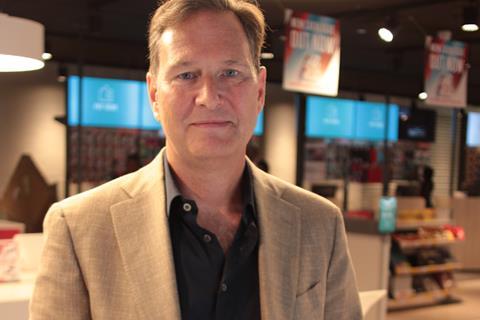
On September 2 Walden, who led Argos’s transformation into a digital frontrunner and went on to become chief executive of parent company Home Retail and sell off subsidiary Homebase for £340m in January, will stand down upon completion of the deal.
Speaking to Retail Week in Argos’s Old Street store, near London’s so-called Silicon Roundabout, Walden reflects on the changes he has made.
The location is appropriate – Old Street was once of the first branches to be converted to a digitally-led format and so is representative of some of the changes made by Walden since his arrival.
That arrival was itself a surprise. In UK retail Walden was pretty much unknown when he took over Argos.
Because of a previous job he was characterised as a cleaning products salesman, despite extensive experience at big US retailers such as Best Buy and Sears.
What could he bring to Argos, some asked. For Walden, the role appealed because he believed his experience of how digital technology was transforming business in the US could allow him to put Argos ahead of the curve in the UK.
Replicating the US experience
He says: “I thought what was going on in the US might be replicated here and we could create value if we hurried.
“In the US, store space had become less productive and retailers were moving towards smaller and more local stores.
“I thought Argos stores were set up in a way that could be interesting. The way it tracked inventory was very interesting as we moved online and had to get individual products to consumers.
“In general, I thought it was a really good fit for a digital model if we could move quickly enough.
“In a digital business people have to be able to build their own software”
John Walden, Argos
“Strategically it was uncertain what its future would be. Change was urgent but it was not on the brink by any stretch – it had the financial resources to invest in transformation.”
The transformation ranged from the introduction of the digital store model, in which shoppers were encouraged to use tablets rather than the traditional catalogue, enhanced services such as no queuing, the development of the hub-and-spoke distribution system that allowed the rapid movement of product, m-commerce initiatives and fulfilment advances such as Fast Track delivery.
What united all the changes was the central role of technology and the creation of a digital mindset at Argos.
Walden says: “A digital business is a technology business and technology is a challenge not just functionally but culturally, because you want a team that is sophisticated and confident to use technology.”
US ahead of Europe
The US, observes Walden, has been ahead of Europe in software development.
That is simply a function of the vast scale of investment in startups rather than reflective of any inability in Europe, but Walden says: “In a digital business people have to be able to build their own software.”
Argos originally worked with Accenture to bolster its technological capabilities and skills. The partnership meant that Argos staff learned from Accenture and the retailer was then able to build internal expertise.
Walden recalls: “Our team was forced to interact with Accenture and make judgements, and that enabled them to understand. It was a good learning experience.
“We meanwhile thought about what we needed to develop internally and what sort of team. We started populating our digital hub and hiring our own tech teams.”
In the end, Walden asserts, “we moved the dial in creating a business led by technology”.
The same approach was replicated across the business through Project Discovery, an initiative designed to win support for the shift to digital, create enthusiasm to execute the plan and encourage the fresh thinking needed.
He says: “It was giving people a licence to dream, to be innovative, to do the right thing for the customer.
“It was giving people a licence to dream, to be innovative, to do the right thing for the customer”
John Walden, Argos
“We had the teams benchmark, find best in class, develop plans without limits. Through that they ultimately had ownership of the plan and felt the excitement of what it would be like to do things differently.”
While Argos has had its ups and downs since Walden’s arrival, it has changed to such an extent that it caught the eye of Sainsbury’s, which sees the opportunity to create a food and general merchandise multichannel giant that can rival powerhouses such as Amazon.
Walden is enthusiastic about the tie-up, which he describes as “tremendously exciting”. He is convinced it will create a business well positioned to adapt to the big structural shift under way in retail.
The growth of online retail has resulted in squeezed margins and a “challenged profit profile” which in turn affects traditional considerations such as investment in stores.
Again, he draws comparisons with what is happening in the US. “The business model is under pressure and I think the same is happening here,” he concludes.
He says: “It’s not that retail is gloom and doom, but the winners will be people that can anticipate what will happen and do things structurally that will give them an advantage.
“That’s what I’ve done with partnerships whether it’s eBay, EE or Homebase and Sainsbury’s concessions. We’ve put options in place. You want to try to give your company options, not knowing exactly which one will work.”
Argos concessions
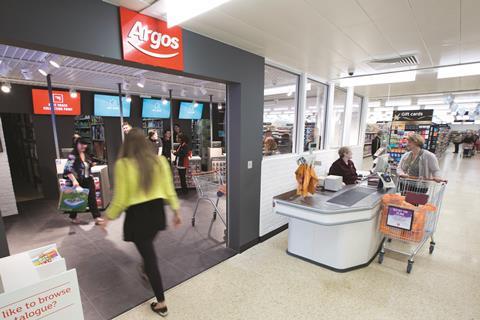
It is expected that Argos will open many more concessions in Sainsbury’s stores following the link-up.
Walden says: “The concession model is really exciting and substantially reduces the cost of a local presence. You have more localities at less cost and that’s an option a lot of retailers don’t have.”
Such cost savings are all the more important because the demands of keeping up with customer expectations and disruptive new ways of doing business demand continuous investment – digital commerce does not come cheap.
Walden points out: “The standards of digital experience go up every year whether it’s Amazon, Asos, AO or Argos.
“Ecommerce is not a one-off investment in a site. You’re always investing in better experience, better fulfilment.”
The deal will allow the pair to make the most of their complementary customer bases to “offer more product across more fulfilment options and locations”. “In a couple of years I think we’ll look back and this will be seen as fortunate,” he maintains.
The remaking of Argos has not been without difficulties.
Shoppers proved more attached to the catalogue, famously described by comedian Bill Bailey as “the laminated book of dreams”, than had been expected. But Argos reported its best sales growth in two years in June.
If Walden left a note on his desk for successor John Rogers, the Sainsbury’s finance chief who will take the helm at Home Retail, what would it say?
Walden’s reply is that the important thing is to “be open to learn” and not to make assumptions.
“Argos is a very different business from Sainsbury’s although there are things in common,” he notes.
“A culture around technology, innovation, pace, teaching and learning is different from a large-scale food business. Listen and adapt what’s there. If you’re a hammer, everything looks like a nail.”
Walden will remain on hand for three months on a consultancy basis following completion of the transaction with Sainsburys and in the longer term he appears keen to find another role in business in Britain. “I hope in some capacity to stay involved over here,” he says.
Perhaps he will once again deploy all the tools in his box to drive another digital transformation.




















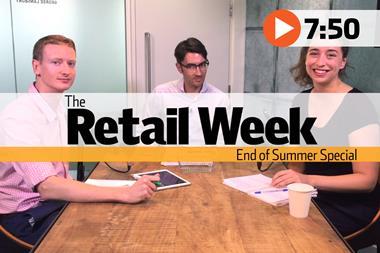





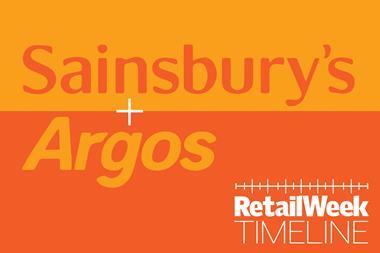
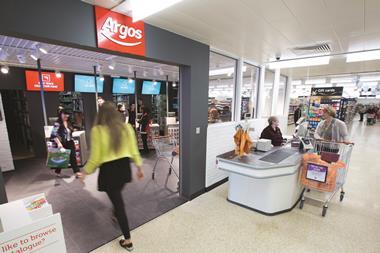
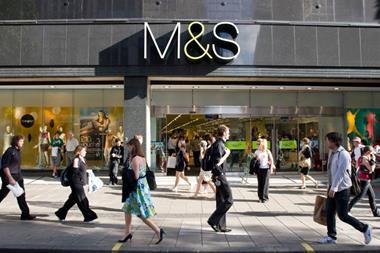
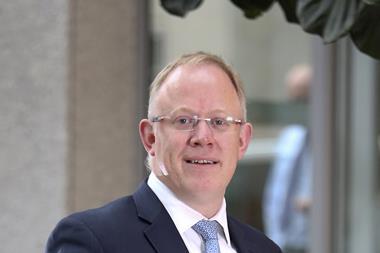
No comments yet